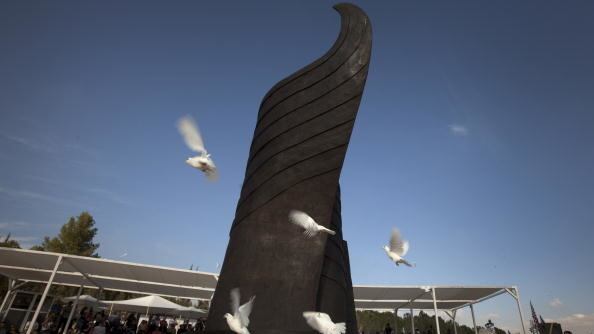Shortly after the horrific 9/11 attacks, Canadian government agency invited a group of McGill University professors to provide an off-the-record briefing explaining what had occurred. One professor after another blamed the assault on one American sin after another. Crossbreeding elitist anti-Americanism with narcissistic academic theorizing, the Central American specialist mentioned America’s assault on Nicaragua in the 1980s; the Africanist blamed America’s neglect of Africa; and so on. When it was my turn, I said, “I think I was watching the wrong channel that day—perhaps NBC not CBC. What I saw was that al Qaeda attacked America, yet you are all blaming the victim.”

Eleven years later, I remember that exchange as a warning to those of us who wish to understand 9/11’s significance to Israel. Viewing those events through a blue-and-white prism risks distortions, especially given the black-clouded fury of those days and today’s misty haze of forgotten memories. Still, it does seem that then—and now—the 9/11 terrorist attacks served as a propellant for some Americans and Jews, bonding them ever more intensely with Israel. While for others, 9/11 ultimately served as a repellent, especially after the ugly fight over America’s war in Iraq.
On that awful day, many Americans immediately thought of Israel. People talked, for example, about learning Israeli security techniques. They felt a common destiny, a shared anguish, a reinforced sense of values. They started paying more attention to the wave of Palestinian terror Israel had been enduring for a year already—especially after CNN aired images of Palestinians dancing after the Twin Towers’ collapse.
Moreover, 9/11 heralded a Bush’s administration shift toward Israel’s response Palestinian terror. September 11 was a crucial step in Israel gaining American approval for military incursions in the West Bank in April 2002. Subsequently, strategic, diplomatic and military cooperation between the U.S. and Israel in their common war against terror further bonded the two countries—and many of their people.
At the same time, 9/11 ultimately propelled the Bush administration into the Iraq War. The divisive fight over the invasion distanced some from Israel. First, there were those who believed that it was America’s pro-Israel orientation that landed American soldiers in Baghdad. Some who did not buy that narrative were still so sour on Bush that his increasingly ardent support for Israel became a toxic embrace. To these people—and again, I am giving impressions not statistical analysis—Israel and Iraq became neoconservative projects. This neoconning of Israel alienated some Americans, including some American Jews, from the Jewish State.
Today, many foreign policy issues, especially those concerning the Middle East, shake out between those who worry about another 9/11 and those who fear another Iraq. Even though Barack Obama as President has done much to blur the lines by approving the assault on Osama Bin Laden and deploying drones against terrorists while ending the Iraq war, this division persists. The memories of 9/11 do provide more glue in the America-Israel relationship, even as the lingering effects of the Iraq debate strain the friendship. We can also see the impact in the current debate about Iran. Those who focus on 9/11’s lessons champion aggressive preventative action. Those who remember the Iraq War debacle are more skeptical of American motives and the military’s ability to produce desired outcomes.
On this eleventh anniversary of 9/11, in the broad, compassionate, national spirit that emerged on that painful day, each faction should learn a bit from the other, rather than simply refuting each others' claims. Both regarding Israel and the rest of the world, those who worry about another 9/11 are correct—there are evil forces that need aggressive policing. But those fearing another Iraq War are also correct—the world is far too complex for us to dictate desired outcomes, with complete confidence, all the time.






